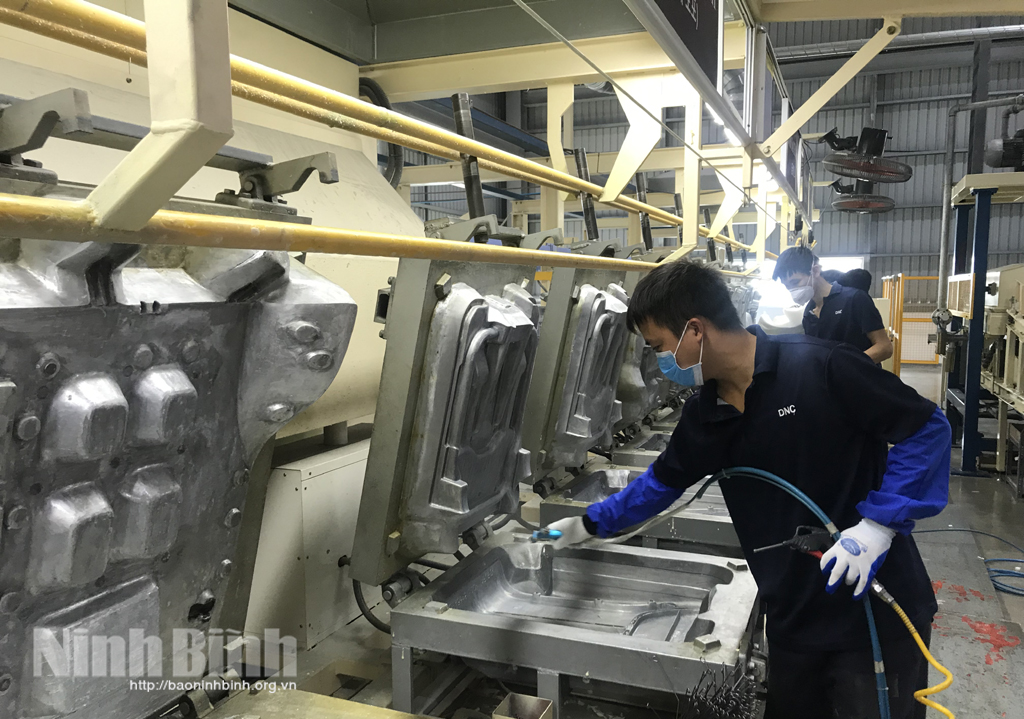Ninh Binh continues attracting investment into supporting industries

Currently, the province is home to over 210 enterprises operating in supporting industries and completely-finished products, namely garment, mechanical engineering, handicrafts and others. In the 2016-2020 period, some supporting industry products saw sound growth.
The number of cars assemblied in 2020 was 75,000 units, an 11-fold increase from the figure in 2016; camera modules was estimated at 150 million pieces, a 3-fold rise as compared to that of 2016; and electronic components reached 250 million pieces in 2020, a 1.3-fold jump from 2016.
In 2021-2025 period, Ninh Binh will continue developing supporting industries to attract more investment, with a focus on luring big enterprises which have rich experience, financial capacity, modern technology and high competitiveness edge.
At the same time, it will focus on developing small- and medium-sized enterprises in the field of supporting industries, thus creating domestic supply chains of products, services, and consumption.
Ninh Binh will also strives to ensure an equal investment and business environment for both domestic and foreign enterprises in line with current laws.
To reach the targets, the Department of Industry and Trade will continue to disseminate and effectively implement support policies and incentives for enterprises, said its Director Hoang Trung Kien.
These policies and incentives aims to improve the skills and qualifications of human resources; apply and renovate techonologies in manufacturing.
At the same time, the department has made efforts to finalise planning, build and develop industrial clusters in the province in an attempt to attract more domestic and foreign capital sources, in particular FDI into supporting industries and hi-tech and clean industries.
To date, Ninh Binh has established and expanded 17 industrial clusters, covering a total area of over 620 hectares, with an average occupancy rate at 54.9 percent.
At present, 10 industrial clusters have attracted construction and infrastructure service enterprises with total registered capital investment of over 2.72 trillion VND.
In the time to come, Ninh Binh will study and predict the trend of FDI shifting to map out a suitable strategy to attract high-quality FDI sources, which are in line with the real situation and socio-economic development of the province.
It will continue to strengthen cooperative relationships with twinning localities and economic and financial groups, and promptly remove difficulties faced by enterprises, thus providing favorable conditions for them to operate.
Ninh Binh will also assist local enterprises in taking advantages of the EU-Vietnam Free Trade Agreement (EVFTA) to enjoy export, tariff, and tax preferences.
Translated by Nguyen Thuy


